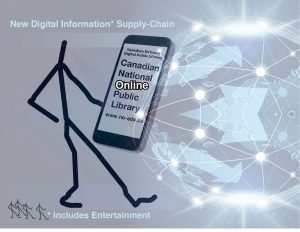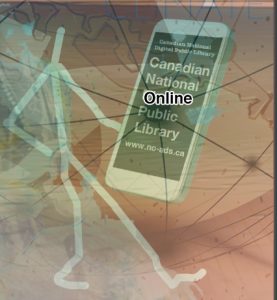FAQ
The Online Public Library Project FAQ – Frequently Asked Questions:
This website [ https://no-ads.ca ] will never ask you for money or advertise for a third party.
Its purpose is to change minds and move legislation.
1. Without ads, how will people know what to buy?
2. How will businesses let people know about their new products or services?
4. How can the government be kept from controlling the content?
If it is good it does not need to be advertised in the media.
Question: 1. Without ads, how will people know what to buy?
Answer: 1. This might seem like a silly question and a lot of people should be able to answer it for them selves but some people are accustomed to the way things work now. To know what to buy, people will have to rely on independent third party reviews: resources like Consumer Reports. People will also consult their friends and associates.
Question: 2. How will businesses let people know about their new products or services?
Answer: 2. Consumers will rely on trusted independent reviews of products and services. Job number one for a media outlet under a Democratically Funded Media System, will be to keep an audience and they will do that by building trust and they will build trust by showing the audience important truths or quality art. Businesses with a new product or service will notify media outlets that specialize or include third party product reviews in their content. A new product that is somehow better or cheaper than anything else is important news. And a new product that is a rip off is also important news.
Question: 3. How will you get people to accept paying a tax so that they can, free of charge, have access to all media news and entertainment?
Answer: 3. People will accept paying a tax for this kind of service when they understand that it is going to save them at least as much as they would be paying as a tax and that it will result in big savings of wasted time.
It is a rip off! and it is a lie that advertising funded media gives us access to “free” information and entertainment. In effect consumers pay a hidden goods and services tax that is used to sponsor our media. In almost every transaction, part of the cost to the consumer is the producer’s and distributor’s advertising cost.
The money comes from the consumer to the producer and then goes to pay for “free” media. The entertainment and information we demand are in themselves products. Our own agenda is to be entertained and informed. We accept the interruption of our agenda by commercial advertising on the false pretense that we are getting something for free. Something that we could not afford otherwise. The irony is that we are paying anyway. If advertising were not allowed to sponsor our media, this hidden tax would be gone and everything should be able to be sold for 3% less, (3% of the GDP is spent on advertising in the media). If the government then added a visible media GST of 3% the cost of a product would be back to the same level for the consumer.
- “Everybody’s against taxes. In a functioning democracy you’d be in favour of them.” Noam Chomskey
- Taxing to sustain an advertising free media is smart taxing.
Question:4. How will you keep the government from controlling the content?
Answer:4. Of course we don’t want a soviet style media where the government controls the content. We don’t want either government control of the media or control by the super rich. To insure against state control of publicly funded media – It is essential that the way public funds are dispersed is democratically determined. The simple way to achieve democratically determined funding is for the state to be responsible to pay a micro payment to a copyright owner each time a person uses ad-free content. That way the population’s choices determine what levels of public funding each and any media outlet merits.
With the Democratically determined funding model the government pays but based on those arm’s length independent audience measurements. This system is not only democratic but a proportional democracy. It puts the consumers – the people – the citizens in control of content.
Question:5. What about free speech? Is funding ad free media taking away a media outlet’s right to say whatever it wants.
Answer:5. No. – Commercial Media Outlets could continue to present their content on their own platforms and continue to present advertising on their own platforms.
Question:6. How is this democratic?
Answer:6. Democratic in that use becomes a vote. By requesting and using media content a person automatically triggers payment. Each person has an equal opportunity to direct a payment to the actual owners of the media content being served.
Question:7. Who would run the service?
Answer:7. A robot would run the service. The robot would be governed by 2 types of democracy
It is very hard to get away from a hierarchy of control but you can make the control more democratic.
Control shared by two types of democracy —
In the online public library, proposed control would be shared by the patrons and by our representative democratic government. The government would in writing the Act to create the service, determine classes of content and their corresponding rates of pay per use by patrons. The patrons would determine who is paid at those rates.
Important to note that although each automatic payment would be triggered by a patron choosing and using certain content, the patron would have a manual option to block a payment their use had automatically triggered, if they deemed the particular content to be inappropriate or unworthy and not meriting public support. This control by the patrons of where the money is spent is extremely democratic. It is direct democracy.
Setting the overall structure of the payment system with a budget and classes of content and their corresponding rates of pay per use by patrons, seems to necessarily be a task for representative government. It is the same kind of work that our representatives do when they write fair tax law and make a general budget.
Question:8. What about content moderation, fact checking and harm reduction online?
Answer:8. Certain limits to free speech are already defined by law regarding publication of print media. These same rules and laws do not apply on the internet. This being the case the efficient way to build a library of good content is to have requirements for contributors. Contributors would be required to be a real identified natural person representing themselves, or a firm or organization. They would be required to agree to obey all the same rules, laws and regulations that govern publication of print media. Payments for the use of their content would be made to them. This will create a cleaner space in the online media environment where lies and hate and harm are less likely to go.

This website [ https://no-ads.ca ] will never ask you for money or advertise for a third party.
Its purpose is to change minds and move legislation.
